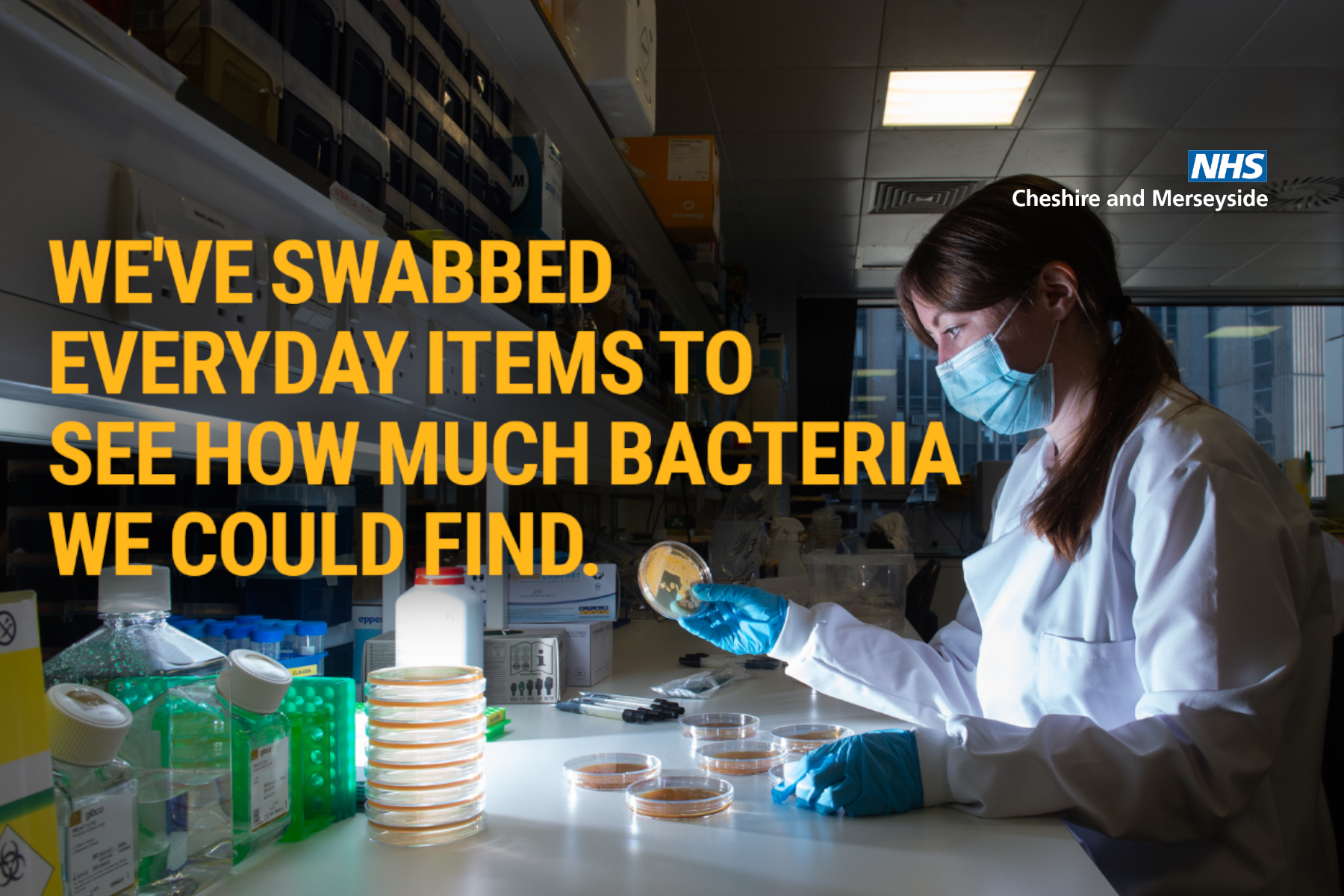
Helping to prevent the spread of illness is in our hands.
We know it’s all about the simple things. Such as spending time with loved ones and enjoying family days out.
That’s why it’s important to be mindful of how easy it is to spread bugs and diseases to one another when you feel unwell and because of contaminated or dirty surfaces.
With help from the experts at Liverpool’s world-leading centre for infection innovation consortium, we swabbed 5 commonly touched items and things to see just how much bacteria can be found on them.
• Toilet door handles
• Pets
• Keyboards
• Self-service tills
• Handrails
iiCON’s testing facilities found thousands of bacteria.
To help prevent the spread and make sure everyone in our local and surrounding area is healthy and happy, together we must remember to do these simple things.
Wash hands
Sanitise surfaces
Cover face
Keep your distance
Discover how and when to do those simple things that help prevent the spread of bugs and diseases.
Brought to you by your local council and supported by the NHS in Cheshire and Merseyside.











To make sure everyone in our local and surrounding areas is healthy and happy, here’s some help with when and how to do those simple things that help prevent the spread of bugs and diseases.
-
Washing your hands with soap and warm water is one of the most simple ways to prevent yourself and others from catching illnesses such as the flu, norovirus, food poisoning, the common cold and much more.
-
You should wash your hands as often as possible. And always when:
● Using the toilet or changing a nappy
● Preparing or handling food, and before and after eating
● After blowing your nose, sneezing or coughing
● After touching animals and pets or any of their belongings such as food bowls
● Before and after treating cuts or wounds
● Before and after visiting a healthcare setting or hospital
● After you touch surfaces that come into regular contact with others such as handrails and door handles, and spaces such as public bathrooms and communal kitchens
-
You should wash your hands with warm water and soap for at least 20 seconds. If you don’t have any water or soap to hand, use an alcohol-based hand sanitiser.
-
Surfaces can become contaminated with germs from you and others if they are touched by someone who is ill. Sanitising surfaces such as worktops, handles, light switches, electronic devices and work surfaces can help prevent the spread of winter illness.
-
A cough or sneeze can sometimes be the first sign of a winter illness. When you cough or sneeze, thousands of particles are released into the air and therefore others are at risk of becoming infectious. By covering your mouth or nose you will significantly help to prevent the risk of others getting sick.
If you don’t have a tissue to hand, cough or sneeze into the crook of your elbow, not your hand. Always throw the tissue in the bin after and wash your hands with soap and warm water, or hand sanitiser.
-
We understand that it is not always easy to self-isolate when you are unwell. But, if possible, you should try to maintain a reasonable distance to help prevent others from being infected.
We recommend you speak to your employer about working from home if possible and try to avoid public transport or travelling during peak times.
If you feel you need to speak to a pharmacist or visit your GP, you should ring first and let them know your symptoms.
In spaces you can’t keep your distance, circulate air where possible and regularly clean surfaces.
You can also consider wearing a well-fitted face mask.
-
While there are lots of simple things you can do, getting your COVID and flu vaccinations will give you the best possible protection against winter illness.
The NHS will let you know when it’s your turn to have the COVID booster and you may also be eligible for a free flu vaccination if you meet the criteria.
You can also book and pay for your local pharmacy to provide you with a flu jab if you do not meet the NHS criteria but would like the protection.





